
Principal Investigator, CV
Professor, Dept. of Biomedical Engineering
Dorf-Ebner Distinguished Faculty Fellow
Associate Director, Biological Design Center
Co-Director, SB2 NIH/NIGMS T32 Training Program
Visiting Scholar, Wyss Institute at Harvard University
Faculty, Molecular Biology, Cell Biology & Biochemistry
Faculty, Bioinformatics
khalil@bu.edu
Mo is Professor of Biomedical Engineering and Founding Associate Director of the Biological Design Center at Boston University (BU). He is also a Visiting Scholar at the Wyss Institute for Biologically Inspired Engineering at Harvard University, and Co-Director of a NIH/NIGMS T32 PhD Training Program in synthetic biology. Mo was an HHMI Postdoctoral Fellow with Dr. Jim Collins at BU, and before that he completed his PhD at MIT with Drs. Angela Belcher and Matt Lang. Mo is co-founder of K2 Biotechnologies and Fynch Biosciences, serves on the Scientific Advisory Board for Chroma Medicine and Senti Biosciences, and consults for numerous other biotechnology and therapeutics companies. His personal interests include taking his dog (Eloise) to the park and attempting to make the perfect cappuccino with his Nespresso machine.
Selected Awards:
2022 Schmidt Science Polymath Award
2022 W. M. Keck Foundation Medical Research Award
2021 AIMBE College of Fellows
2020 DoD Vannevar Bush Faculty Fellowship
2017 PECASE Award
2017 BU Early Career Research Excellence Award
2016 NIH New Innovator Award
2016 DARPA Young Faculty Award
2015 Hartwell Foundation Investigator
2014 NSF CAREER Award
2013 Innovation Career Development Professorship
2012 Wallace H. Coulter Foundation Research Award
Teaching Awards:
2023 Outstanding Professor of the Year (College)
2023 Award for Teaching Excellence (Department)
2016 Outstanding Professor of the Year (College)
2016 Award for Teaching Excellence (Department)
2015 Award for Teaching Excellence (Department)
2014 NAE Frontiers of Engineering Education Invitee
2013 Award for Teaching Excellence (Department)

Postdoctoral Fellow
PhD Biochemistry, Harvard University (2020)
BS Genetics, Cell Biology, and Development / Biochemistry, University of Minnesota (2010)
angstman@bu.edu
During his PhD work in Keith Joung's lab, James worked on genome and epigenome editing technologies with a particular interest in CRIPSR Base Editing. He is interested in using continuous evolution to both expand the genome editing toolkit and upon current targeted editing technologies. James enjoys Boda Borg, is bad at chess, and has mined several dollars worth of Bitcoin on his home computer.
Selected Awards:
2014 DoD NDSEG Fellowship
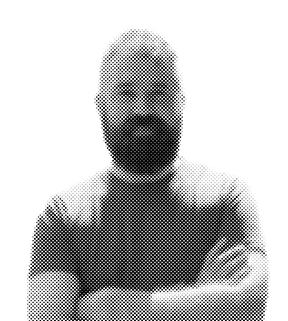
Postdoctoral Fellow
(*Co-advised with Mary Dunlop)
PhD Chemical Eng., Caltech (2021)
BA English, North Carolina State Univ. (2014)
BA Chemical Eng., North Carolina State Univ. (2013)
hklumpe@bu.edu
In her PhD, Heidi worked to untangle the combinatorial logic of BMP (Bone Morphogenetic Protein) signaling, whose diverse combinations of ligands pattern a wide array of tissues. Inspired and somewhat cowed by the beautiful complexity of development, she hopes to combine yeast synthetic biology and evolution experiments to understand the design principles of simple multicellularity. Outside of lab, she enjoys activities that pair well with podcasts, mostly running and cooking.
Selected Awards:
2022 Damon Runyon Fellowship
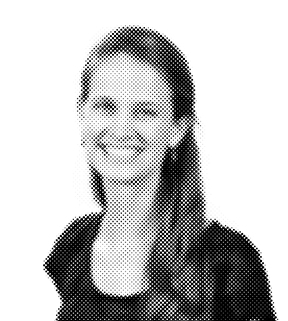
Postdoctoral Fellow
Postdoc IST Austria (2020)
PhD Molecular Biology, University of Vienna/IMBA (2018)
MS Molecular & Cellular Biology, Heidelberg Univ. (2013)
BS Biotechnology, The German University in Cairo (2009)
hagar.moussa@gmail.com
Hagar received her MS in Molecular and Cellular Biology from Heidelberg University while working in Bruce Edgar’s Lab on the growth and proliferation of stem cells in the fly midgut. As a graduate student in Oliver Bell’s Lab at IMBA, she worked on deconstructing epigenetic inheritance mediated by the Polycomb group of Proteins in mammalian stem cells. Among her interests is delving deeper into the basics of epigenetic memory to engineer elaborate layers of artificial epigenetic control into cells, to see how far we can go and for potential applications in industrial settings. Outside the lab, Hagar enjoys long runs, following F1 racing, hunting for new music, and reading. There is also a sewing machine sitting somewhere in a corner, but we haven’t gotten there yet.
Selected Awards:
2010 HBIGS MSc/PhD Fellowship

Postdoctoral Fellow
(*Co-advised with Chang Liu)
PhD Biomedical Eng., Boston University (2018)
BS Bioengineering, UC Berkeley (2011)
npatel89@bu.edu
During graduate school, Nikit engineered cooperative transcription factor complexes in yeast to enable highly specific and tunable multi-input transcriptional logic. He also developed a thermodynamic model of protein assemblies in order to guide the construction of novel spatiotemporal regulatory behaviors in cells. For his postdoc, Nikit is building genetic circuits that enable high-throughput antibody discovery for multi-pass membrane proteins.
Selected Awards:
2020 Damon Runyon Fellowship

Postdoctoral Fellow
(*Co-advised with Chang Liu)
PhD Biomedical Eng., UC Irvine (2019)
BS Bioengineering, Caltech (2011)
aravikum@bu.edu
As a graduate student in Chang Liu’s lab at UC Irvine, Arjun developed OrthoRep, a system for continuous evolution of genes in yeast. Currently, he is applying OrthoRep towards therapeutic and industrially relevant problems, including antibody discovery. In his spare time, Arjun suffers from a debilitating Youtube addiction, and occasionally musters the willpower to read a book.

Postdoctoral Fellow
PhD Neuroscience, University of Virginia (2022)
BS Biological Sciences, Univ. of South Carolina (2010)
mhraymnd@bu.edu
Mike received his BS in Biological Sciences from the University of South Carolina and his PhD in Neuroscience from the University of Virginia. During his PhD work in Dr. Kodi Ravichandran’s lab, Mike developed tools for tracking cell death and cell clearance in vivo. He is now interested in engineering synthetic circuits and immune cell behavior. When not in the lab, he enjoys hiking, cycling, making bad puns, and spending time with his wife and dog Murphy.
Selected Awards:
2018 EMBO Workshop Poster Award
2016 NIH Neuroscience Training Grant

Postdoctoral Fellow
PhD Biological Sciences, UC Irvine (2023)
BS Cell and Molecular Biology (2017)
grix.LC@gmail.com
In Chang Liu's lab at UC Irvine, Gordon's PhD work focused on improving the targeted in vivo mutagenesis system OrthoRep, making it faster and less biased. He also developed an automated pipeline for NGS analysis of mutation-rich DNA libraries. He is now interested in applying OrthoRep to affinity maturation of antibodies in yeast. Outside of lab, Gordon enjoys hiking, rock climbing, billiards, and sniffing his dog.

Postdoctoral Fellow
(*Co-advised with Mary Gehring)
PhD Bioengineering, Imperial College London (2019)
MBiolSci Biochemistry, Sheffield University (2014)
wm.shaw1991@gmail.com
As a graduate student in Tom Ellis' group at Imperial College London, Will pioneered novel approaches for refactoring signal transduction pathways in yeast. He is now interested in applying a synthetic genomics approach for deciphering gene regulation over large regions of the eukaryotic genome, using plant metabolic gene clusters as a model system. Outside of the lab, Will is passionate about cycling, fly fishing, gardening, and of course, a nice cuppa tea.
Selected Awards:
2021 EMBO Postdoctoral Fellowship

Postdoctoral Fellow
PhD Quantitative Biosciences, Georgia Tech (2022)
BS Biological Sciences, Fudan University (2017)
kaitong@bu.edu
During his PhD with Dr. William Ratcliff, Kai discovered the evolution of cell differentiation and whole-genome duplication in the Multicellularity Long-term Evolution Experiment (MuLTEE), using snowflake yeast as a model system. Leveraging both engineering and evolution, Kai seeks to understand the fundamental challenges and opportunities faced by multicellularity and explore how to design and build novel multicellular systems. Outside of lab, you may find Kai hiking in national parks, wandering in art museums, or simply enjoying living a multicellular lifestyle.
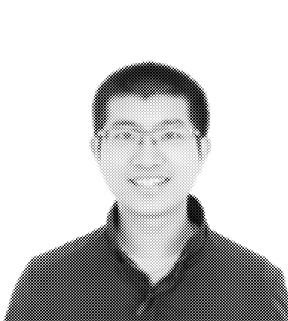
Postdoctoral Fellow
(*Co-advised with Chang Liu)
PhD Biomedical Eng., Boston University (2018)
BS Biomedical Eng., UC Irvine (2012)
bgwong@bu.edu
As a graduate student in Mo Khalil's lab, Brandon developed eVOLVER: a DIY, automated, high-throughput microbial cell growth platform. His current work is applying eVOLVER to various problems in molecular evolution and experimental evolution. Brandon is known for (and proud of) his loud and hearty laugh. Less importantly, his interests include swimming, biking, and just about any sport invented.
Selected Awards:
2013 GAANN Fellowship

PhD Student, Bioinformatics
BS Biological Sciences, University of Delaware (2017)
nborders@bu.edu
At University of Delaware, Nate perturbed the genetics of mouse eye development in Dr. Salil Lachke's lab. Post-graduation, he developed synthetic cell-cell adhesion proteins and adapted the eVOLVER platform for growth of photosynthetic organisms in Dr. George Church’s lab. Currently, he adapts the eVOLVER for growth of bacteriophage in phage-assisted continuous evolution (PACE). He dreams of reversing man-made climate change, using biology to grow everything we need, and other utopian nonsense. His hobbies change rapidly but he could use suggestions for good fantasy series.
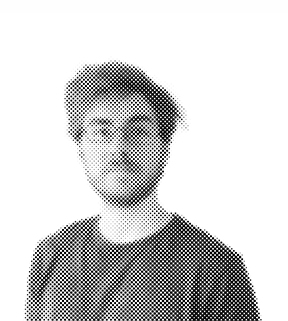
PhD Student, Biomedical Eng.
(*Co-advised with Mikel Garcia-Marcos)
MS Bioengineering, Tufts University (2019)
BS Chemical Engineering, Tufts University (2018)
abfitz@bu.edu
Ben graduated from Tufts University in 2018 with a B.S in chemical engineering and in 2019 with a M.S. in bioengineering. During this time, he worked in Dr. Kyongbum Lee’s metabolic engineering lab, probing the effects of flavonoids on the gut microbiome. At BU, his work focuses on the therapeutically relevant class of proteins GPCRs, working on nanobody discovery efforts. Outside of lab, he likes building with Lego, watching movies, and anything and everything to do with food.

PhD Student, Biomedical Eng.
BS Bioengineering, BA German Studies, UMD College Park (2023)
agajendi@bu.edu
Anjali graduated from the University of Maryland College Park with a BS in Bioengineering and BA in German Studies. Her undergraduate work involved genetic engineering in E. coli and toolkit development in the algae species N. oculata. Anjali's current work involves technology development in Arabidopsis as a model organism to induce random structural variation for robust genome reorganization. Beyond the lab, she enjoys reading, playing board games, listening to NPR podcasts, and practicing her German.
Selected Awards:
2023 NIH Quant. Biology & Physiology Training Grant
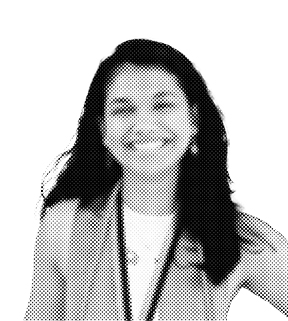
PhD Student, Biomedical Eng.
BS Bioengineering, Stanford University (2017)
danhart@bu.edu
Daniel completed his Bachelor’s degree in Bioengineering at Stanford University. At Stanford, he developed genomic screens for validating cancer driver genes in organoids. His current research focus is adapting the Khalil Lab’s eVOLVER platform for novel applications in synthetic and evolutionary biology, including anaerobic microbial communities and biotherapeutics. Away from lab, Daniel likes to read nonfiction, cook potatoes, sail boats, and dodge Boston traffic on his bike.

PhD Student, Biomedical Eng.
(*Co-advised with Seth Rakoff-Nahoum)
MS Biomedical Eng., Boston University (2019)
BS Biomedical Eng., Duke University (2017)
cbjo@bu.edu
Charles graduated from Duke University with a BSE in Biomedical Engineering, before pursuing his MS in Biomedical Engineering at Boston University. There he discovered his passion for microbiome and synthetic biology research, developing a co-culture device that enables real-time growth measurements of interacting microbes. Charles is currently interested in developing novel tools to understand how ecological interactions drive the evolution of community members and structure, particularly in the human gut microbiome. You can usually find Charles laughing way too loud, tending to his pet fish, microgreens and Corgi-mix, and daydreaming about a day Pokémon are real.

PhD Student, Biomedical Eng.
BS Biomedical Engineering, USC (2017)
ckunze@bu.edu
Colin graduated from the University of Southern California in 2017 with a BS in Biomedical Engineering and a minor in Computational Biology and Bioinformatics. At USC, he worked in a vision research lab studying retinitis pigmentosa. His current research interests involve engineering epigenetic regulatory systems and cellular memory. Outside of the lab, he enjoys swimming, eating everything, and competing in triathlons.
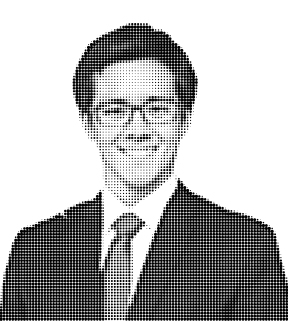
PhD Student, Biomedical Eng.
BS Biomedical Engineering, Binghamton University (2022)
sloshin@bu.edu
Sarah completed her Bachelor’s degree in Biomedical Engineering at Binghamton University; as an undergraduate, she investigated the use of nanomaterials in diagnostics for infectious disease. Sarah’s interest in synthetic biology was realized as she started her graduate career. Her current research focus is in exploring the stability of cell aggregation in wild S. cerevisiae strains and engineered lab strains to inform future engineering of robust multicellular systems. Beyond research, Sarah enjoys eating good food in good company, listening to podcasts while crocheting or strolling along the Charles River, and tending to her growing collection of plants.
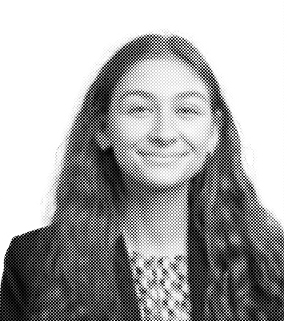
PhD Student, Biomedical Eng.
BS Bioengineering, Univ. of Maryland College Park (2019)
theao@bu.edu
Thea graduated from the University of Maryland College Park in 2019 with a B.S. in Bioengineering. As an undergraduate, she worked in Kimberly Stroka’s lab studying the role of the cytoskeleton in laterally confined cell migration. Before starting her Ph.D. at BU, she worked as a research associate at Be Biopharma, a B cell therapy startup. Thea’s current research interests involve engineering mammalian synthetic circuits for cancer therapy applications. Outside of lab, she enjoys running on the Esplanade, watching reality tv, and rereading Harry Potter.
Selected Awards:
2020 NSF GRFP

PhD Student, Bioinformatics
BA Biology, Clark University (2020)
MS Biology, Clark University (2021)
etchanto@bu.edu
Liz received her BA and MS in Biology at Clark University, but her research was in mathematical modeling of gene transcription. She now seeks to apply her computational background to studying epigenetic regulation in plants. On her days off, Liz can be found losing track of time and teaching people how to pronounce her last name.
Selected Awards:
2022 NIH SB2 Training Grant

PhD Student, Biomedical Eng.
(*Co-advised with Joyce Wong)
BS Biomedical Eng. & Chemical Eng., Vanderbilt University (2017)
yehr@bu.edu
Belle obtained her BS with a double major in Biomedical Engineering and Chemical Engineering from Vanderbilt University. Her undergraduate research focused on developing in vitro assays for a reactive oxygen species (ROS)-scavenging microparticle system. Currently she is working on an interdisciplinary project that combines nanoparticles-based drug delivery and immune cell engineering. Outside the lab, Belle enjoys playing the cello, napping, and any food-related activity.

PhD Student, Biomedical Eng.
BS Biomedical Eng., Boston University (2019)
ezirayw@bu.edu
Ezira completed his Bachelor’s degree in Biomedical Engineering with a minor in Computer Engineering at Boston University in 2019. At BU he worked on research projects involving genetic circuit design and automation tool development for synthetic biology. Ezira’s current research interests involve developing technologies at the interface of biology, software, and hardware to engineer complex cellular phenotypes. In particular, he is interested in leveraging cellular adaption and memory encoded by epigenetic elements. Outside of the lab, Ezira is engaged with the greater synthetic biology community through iGEM and the Nona Research Foundation. For fun he enjoys listening to music, working out, biking, gaming, and discovering novel ways to efficiently kill time in silico.
Selected Awards:
2020 NIH SB2 Training Grant
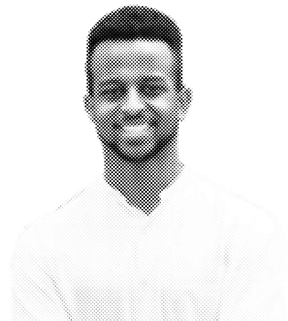
Research Technician
BA Chemistry, Emory University (2019)
ste2@bu.edu
Otgo completed her bachelor’s degree in chemistry at Emory University in 2019. At Emory, she worked on research a project involving a cobalt (II) derivative of a wheel-shaped polyoxometalates as a new water oxidation catalyst. Currently, Otgo is a part of an antibody evolution project at the lab. She enjoys listening to audio books, working out, cooking, and crocheting.
Selected Awards:
2022 CDC ORISE Fellow Research Awardt
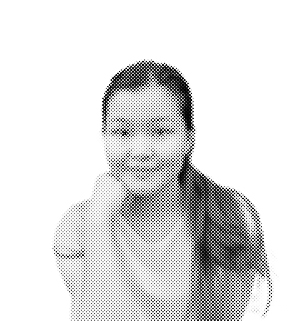
Research Technician
BA Chemistry and Biology, Williams College (2022) morgan@bu.edu
Odysseas got his B.A. at Williams College while double majoring in chemistry and biology. At Williams he completed an undergraduate thesis focused on developing a mutagenesis toolbox for the fast growing bacteria Vibrio Natriegens in the Thuronyi lab. Captured by the allure of synthetic biology, Odysseas now builds synthetic chromatin crosstalk circuits in yeast. For fun, Odysseas enjoys reprimanding uncooperative labware, coming up with Dungeons and Dragons campaigns, and playing a variety of musical instruments (poorly).
Selected Awards:
2022 Roche and Gomez Student Research Fellowship

2012-2015
2019-2020
2018-2020
2019-2020
2020-2021
2016-2023
2016-2023
Associate Professor, North Carolina State University
Associate Professor, TWINCORE, HZI and Hannover Medical School
Assistant Professor, Institute of Bioengineering, Zhejiang University
Assistant Professor, Incheon National University
Scientist II, Affini-T Therapeutics
Assistant Professor, KAIST University
Project Manager, Institute of Biomedical Engineering, University of Toronto
Ali Beyzavi
Gregory Newby
Saloni Jain
Dana Braff
Szilvia Kiriakov
Brandon Wong
Nikit Patel
Abdul Bhuiya (MS)
Maria Simbirsky (MS)
Minhee Park
Eryn (Nelly) Weiser
Chris Mancuso
Divya Israni
Emma Briars
Zachary Heins
Meghan Bragdon
Keith Gagnon
Kok Ann (Sam) Gan
Adam Sanford
2012-2016
2012-2017
2013-2017
2013-2017
2012-2018
2013-2018
2012-2018
2017-2019
2017-2019
2013-2019
2018-2020
2014-2020
2014-2020
2017-2022
2018-2022
2016-2022
2017-2023
2018-2023
2019-2024
Scientist, Roche
Assistant Professor, Johns Hopkins University
Associate Principal, Eversana Life Science Services
Principal Scientist, GRO Biosciences
Senior Computational Biologist, Asimov, Inc.
Postdoctoral Fellow, Khalil Lab; Co-Founder, Fynch Bio and K2 Biotech
Postdoctoral Fellow, Khalil Lab; Co-Founder, K2 Biotech
PhD Student, Bioengineering, UC Berkeley
Bioinformatics Scientist, Inscripta
Assistant Professor, KAIST University
Research Associate, Earli Inc.
Postdoctoral Fellow, Lieberman Lab, MIT
Senior Scientist, BioNTech SE
Computational Biologist, Day Zero Diagnostics
Bioreactor Engineer, Biosphere
Scientist I, Pivot Bio
MD Student, Boston University
Strategic Marketing Specialist, GenScript
Scientist, Nabla Bio
Nora Pyenson
Cathryn Hart
Madeleine Joung
Amir Soltanianzadeh
Rishi Jain
Aditya Cavale
Maxime Fouilleron
Teja Karri
Shaan Bhandarkar
Benjamin Chew
Erdene Galbadrakh
Cass Leach
Pallavi Balivada
Jack Cardini
Paarth Patel
Emily Oros
Allison Liu
2012
2012-2014
2014-2016
2014-2016
2014-2015
2015-2017
2016
2017
2017
2016-2018
2017-2019
2019
2018-2021
2019-2021
2020-2021
2021-2022
2023
Boston University
BU Academy HS
BU Academy HS
Boston University
Boston University
Boston University
FASNY HS
Boston University
Phillips Exeter HS
Boston University
Boston University
Boston University
Boston University
Boston University
Boston University
Boston University
Lexington HS
Max Cotler
Davis Borucki
Rachel Petherbridge
Samantha Pipe
Andrew Montequin
Hannah Vanbenschoten
Michelle Rose
Grace Qian
Kevin Lorch
Louisa Brenninkmeijer
Akhila Sonti
Leen Arnaout
Shuwen (Eric) Lei
Blaire Smith
Kelton Nguyen
Samah Hamid
2012-2014
2013-2014
2014
2014-2015
2015
2015-2016
2016-2017
2017
2017-2019
2018
2018-2020
2019-2021
2019-2021
2020-2021
2022-2023
2023
Boston University
Boston University
William Enloe HS
Boston University
Caltech
Boston University
Boston University
Dover-Sherborn HS Boston University
Univ of Birmingham
Boston University
Boston University
Boston University
Boston University
Boston University
Sharon HS
Synthetic Reconstitution of Complex Cellular Behavior
Can we build biological systems that recapitulate complex cellular functions like those seen in nature? Answering this question is the central goal of our research.
This question also forms the basis of reconstitution, an established experimental approach that reimagines how a biological process can be recapitulated outside of its natural context (e.g. outside of the cell and in a test tube) using a reduced set of molecular components. Biochemical reconstitution has been successfully applied to recreate many processes, enabling precise control over molecular parameters and a powerful way to test mechanistic models and establish sufficiency. Our vision is to implement the power and precision afforded by biochemical reconstitution within the complex environment of a living cell. If we can achieve this, then we can understand and predictably control complex cellular functions that have eluded our understanding, such as those that regulate how cells make decisions, execute responses, establish memories, and develop into multicellular organisms.
To do this, our laboratory is developing novel tools at the intersection of synthetic & systems biology, protein & cell engineering, laboratory evolution, genomics, and computation that enable us to recapitulate and control cellular behavior with synthetic circuitry. This enables us to effectively replace biochemistry with genetics. Taking this leap forward is fundamentally important for basic biology, to discover how cellular behaviors and diseases arise from complex networks of interacting molecules. It is also important for engineering and medicine, offering the potential to precisely control cellular function for next-generation therapies and to “teach” cells and organisms to solve the greatest health, climate, and engineering challenges of today.
Specifically, our laboratory develops tools of synthetic biology that allow us to construct regulatory circuits inside living cells. We are using our tools to dissect the molecular circuits that control gene regulation in eukaryotes, toward addressing the grand challenge of understanding their organization across scale and how they function to generate diverse cellular phenotypes. The basic insights we generate inform the development of platforms to program therapeutically-useful cellular functions for emerging gene and cell-based therapies, such as CAR-T cells for cancer. In addition, our team is developing novel continuous evolution technologies that are automated and scalable, and applying these to generate biomolecules with radically altered or new functions to address unmet needs in biology, medicine, and biotechnology. To broaden the impact of our basic science and medical discoveries, we make the technologies we develop widely usable and accessible to the scientific community. Overall, by learning how to build biological systems from scratch, our broad goal is to connect the molecular building blocks of life to a comprehensive understanding of cellular behavior and ultimately to clinical and other applications.
Brainwide Silencing of Prion Protein by AAV-Mediated Delivery of an Engineered Compact Epigenetic Editor
Edwin N. Neumann*, Tessa M. Bertozzi*, Elaine Wu, Fiona Serack, John W. Harvey, Pamela P. Brauer, Catherine P. Pirtle, Alissa Coffey, Michael Howard, Nikita Kamath, Kenney Lenz, Kenia Guzman, Michael H. Raymond, Ahmad S. Khalil, Benjamin E. Deverman, Eric Vallabh Minikel, Sonia M. Vallabh and Jonathan S. Weissman
Science, 384: ado7082 (2024)
A Multiplex MoClo Toolkit for Extensive and Flexible Engineering of Saccharomyces cerevisiae
William M. Shaw, Ahmad S. Khalil and Tom Ellis
ACS Synthetic Biology, 12: 3393-3405 (2023)
Cooperative Assembly Confers Regulatory Specificity and Long-Term Genetic Circuit Stability
Meghan D. J. Bragdon*, Nikit Patel*, James Chuang, Ethan Levien, Caleb J. Bashor* and Ahmad S. Khalil*
Cell, 186: 3810-3825 (2023)
Mapping the Dynamics of Epigenetic Adaptation
Ajay Larkin*, Colin Kunze*, Melissa Seman, Alexander Levashkevich, Justin Curran, Ahmad S. Khalil† and Kaushik Ragunathan†
bioRxiv, doi: 10.1101/2023.07.10.548368 (2023)
Deep Neural Networks for Predicting Single-Cell Responses and Probability Landscapes
Heidi E. Klumpe*, Jean-Baptiste Lugagne*, Ahmad S. Khalil and Mary J. Dunlop
ACS Synthetic Biology, 12: 2367-2381 (2023)
Long-Term Evolution of Proliferating Yeast Cells Using the eVOLVER Platform
Daniel Garcia-Ruano, Akanksha Jain, Zachary J. Heins, Brandon G. Wong, Ezira Yimer Wolle, Ahmad S. Khalil and Damien Coudreuse
Open Biology, 13: 230118 (2023)
Transcriptional Kinetic Synergy: A Complex Landscape Revealed by Integrating Modelling and Synthetic Biology
Rosa Martinez-Corral, Minhee Park, Kelly M. Biette, Dhana Friedrich, Clarissa Scholes, Ahmad S. Khalil, Jeremy Gunawardena and Angela H. DePace
Cell Systems, 14: 324-339 (2023)
High-Throughput Continuous Evolution of Compact Cas9 Variants Targeting Single-Nucleotide-Pyrimidine PAMs
Tony P. Huang*, Zachary J. Heins*, Shannon M. Miller, Brandon G. Wong, Pallavi A. Balivada, Tina Wang, Ahmad S. Khalil† and David R. Liu†
Nature Biotechnology, 41: 96-107 (2023)
Multidimensional Control of Therapeutic Human Cell Function with Synthetic Gene Circuits
Hui-Shan Li*, Divya V. Israni*, Keith A. Gagnon, Kok Ann Gan, Michael H. Raymond, Jeffry D. Sander, Kole T. Roybal, J. Keith Joung, Wilson W. Wong and Ahmad S. Khalil
Science, 378: 1227-1234 (2022)
A Toolkit for Precise, Multi-Gene Control in Saccharomyces cerevisiae
Adam Sanford, Szilvia Kiriakov and Ahmad S. Khalil
ACS Synthetic Biology, 11: 3912-3920 (2022)
High-Performance Multiplex Drug-Gated CAR Circuits
Hui-Shan Li*, Nicole M. Wong*, Elliot Tague, John T. Ngo, Ahmad S. Khalil and Wilson W. Wong
Cancer Cell, 40: 1-12 (2022)
Modular Design of Synthetic Receptors for Programmed Gene Regulation in Cell Therapies
Iowis Zhu*, Raymond Liu*, Julie M. Garcia, Axel Hyrenius-Wittsten, Dan I. Piraner, Josef Alavi, Divya V. Israni, Bin Liu, Ahmad S. Khalil and Kole T. Roybal
Cell, 185: 1431-1443 (2022)






